Success at school – SAS - 2012-2014
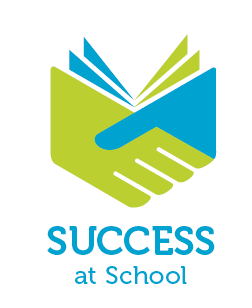
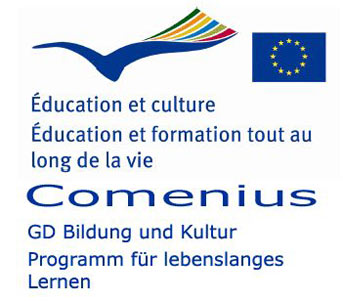
- Scope
- Objectives
- Results
- Experimentation
- European networks
- French networks
- Publications & Presentations
Introduction
School failure is a major cause of social and professional exclusion among youngsters. It is seldom to meet youngsters who would be totally opposed to school. Most of the time they are most stressed by school system because they haven’t found their place. This leads a reaction of reject and as a consequence of exclusion of the school system. Philippe Meirieu, a French pedagogue, developed the “detour strategy” to avoid this negative reaction of youngsters, proposing them other activities, beyond school, that would allow them to learn in other ways. Some school mentoring, proposed by associations outside school, is an example of such activity : youngsters are proposed different kinds of activities allowing to learn a language, mathematics or any other discipline through games or social activities. Other actions such as tutoring provided by students who have succeeded in their studies and explaining that their ‘success story’ could also be the ones of the youngsters , are other examples of actions to give self confidence and hope to youngsters who feel lost and abandoned by school.
Another way would be to propose youngsters leaving in deprived area (“jeunes des quartiers” in French) an alternative pedagogical approach based on a positive experience acquired outside school. A voluntary experience enables to acquire and/or develop skills and competences that could be most useful for pupils faced to difficulties and sometimes show them the road back to school. Volunteering is part of non formal and informal learning enhanced by the Copenhagen process. Among an association, youngsters apply theoretical knowledge learned at school, enrich their social network, acquire or develop skills and competences, exchange good practices in learning.
I. Scope
Initiated by iriv together with the University of Northampton, this project is financed under the Lifelong Learning Programme, Sub-programme Comenius. The main aim of the Comenius project « Success at School through Volunteering » is to propose to youngsters living in difficult areas a pedagogical approach to enhance a voluntary involvement to succeed at school. The project gathers six countries : France, Bulgaria, Italy, Portugal, United Kingdom and Slovenia. This project was awarded first place in the selection 2012 of the Comenius projects. It is offering a training programme to youngsters facing difficulties at school based on volunteering ; it will value this experience in the spirit of the Vaeb project.
At the 2000 European Council in Lisbon, the Union defined the dimension of the school failure problem as : “The number of 18 to 24 years old youngsters with only lower-secondary level education who are not in further education and training”. An EU benchmark was set, that the proportion of early school leavers should not be more than 10% by 2010 (European Commission, 2006). By 2006 only six of the twenty seven Member States had met this benchmark. The average early school leaving statistic in the remaining twenty-one countries is 18%. This is nearly the double the benchmark to be reached by 2010-“ a real challenged” underlined the European Expert Network on Economics of Education (EENEE) under the direction of George Psacharopoulos (The costs of School Failure – A Fesaibility Study, June 2007). The situation is different from one country to another : in 2007, the proportion of youngsters 18-24 years having left early school was 39,2% for Portugal, 18% in Bulgaria ;13,1% in France and 13% in the UK and 5,2% in Slovenia.
II. Objectives
The main aim of the Comenius project « Success at School through Volunteering » is to propose youngsters living in difficult areas a pedagogical approach to enhance a voluntary involvement to succeed at school. The SAS project will propose pedagogical sessions to youngsters around topics allowing them to value learning, to build a path with school between knowledge acquired through volunteering and knowledge required at school. These sessions will be supported by a pedagogical mentoring in order for pupils to be aware of their potential, to value the non-formal and informal learning and find a way back to school.
III. Results
- Pedagogical approach - proposing different sessions to youngsters living in deprived areas to enhance a voluntary involvement in an association, insisting on the educative aspect, professional perspective, cultural and social values
- Mentoring : proposing a support to youngsters/pupils to make them build the link between the activities developed among the association and the skills and competences required at school
- Experimenting the sessions together with the mentoring in the five countries
- national networks of pupils, schools, associations of yioungsters wotrking with shcools
- publications (newsletters, leaflet, articles) - the president of the French initiator and partner, iriv conseil, published two articles in scientific reviews: Traditiones (Institute of Anthropology) and Solsko Polje (Institute for Educational Sciences)
- a website Internet : www.successatschool.eu
- a weblog for the experimentation in Essonne (France): http://sas-essonne.blogspot.fr/
- European network of experts in the field of Early School Leaving (ESL)
IV. Experimentation
Several sessions of experimentation will be held in France by iriv (October 2013- May 2014) together with local stakeholders, associations and schools in Massy in partnership together with the City hall and the College Blaise Pascal
- October : meeting of information together with the CRPVE among the network Success at school
- Novembre 2013 : meeting with educators at the City hall of Massy and with the Fondation Apprentis d'Auteuil
- January 2014 : meeting with educators to explain the pedagogical sessions
- February 2014: spread the word among younsters through educators
- March 2014 : meeting among youngsters (16-18 years) at the Collège Blaise Pascal
- April 2014 : session 1 among youngsters (modules 1 et 2 : volunteering & association)
- April 2014 : session 2 among youngsters (module 3 et 4 : volunteering éducation & employment)
- May 2014 : session 3 among youngsters (modules 5 et 6 : volunteering, diversity and alterity) together with the associations Espace singulier & Choeur qui mouve
- July 2014 : meeting among youngsters, promotion 2014, to deliver the certificate
- September 2014 : meeting with the City hall of Massy and the College Blaise Pascal to launch the promotion 2015
- November 2014 : meeting among youngsters, promotion 2015, to organise the sessions in January
V. European networks
 |
Partner |  France |
http://www. assfam.org |
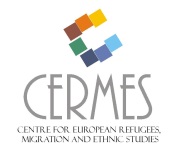 |
Partner |  Bulgaria |
http://www.nbu.bg |
 |
Partner |  Portugal |
http://cies.iscte.pt |
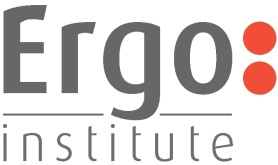 |
Partner |  Slovenia |
http://www.ergo-institut.com |
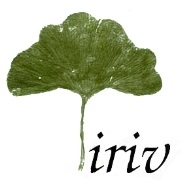 |
Coordinator |  France |
http://www.iriv.net |
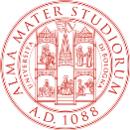 |
Partner |  Italy |
http://www.unibo.it |
 |
Project leader |  United Kingdom |
http://www.northampton.ac.uk |
VI. French networks
- Centre de ressources politique de la Ville de l’Essonne (CRPVE)
- Cité des Métiers de Paris
- Université de Reims Champagne Ardenne
- City Hall of Massy
- College Blaise Pascal (Massy)
- Association Espace Singulier (Massy)
VII. Publications & Presentations
Training programmes
Leaflet
Articles
- C dans l'air Newsletter CRPVE
- Traditiones- From altruism to otherness
- Solsko Polje- Volunteering to struggle against Early School Leaving
Others
- Compendium des projets publié par l’Agence EACEA (2013)
- conference EAPRIL programme
- conference EAPRIL communication
← Back

















